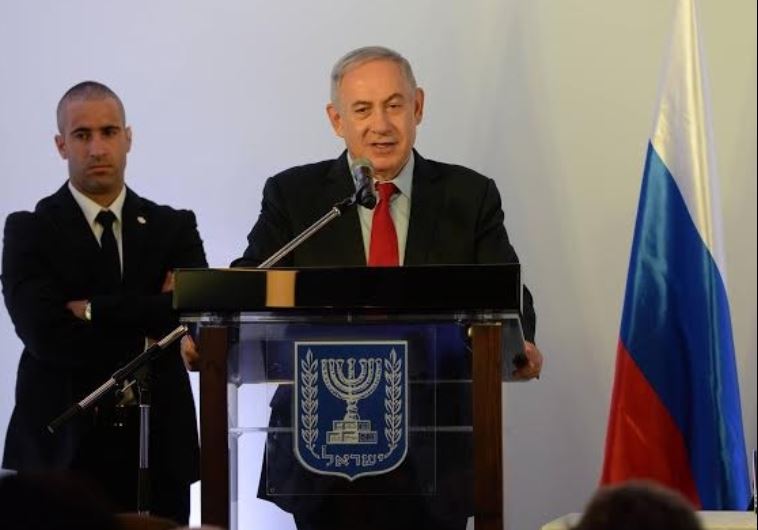Netanyahu: US-not Moscow-cornerstone of our foreign relations
PM rejects Lavrov claim that he accepted 2002 Arab Peace Plan; says Turkey deal could happen soon.
 Prime Minister Benjamin Netanyahu in Moscow, June 8, 2016(photo credit: HAIM ZACH/GPO)Updated:
Prime Minister Benjamin Netanyahu in Moscow, June 8, 2016(photo credit: HAIM ZACH/GPO)Updated: